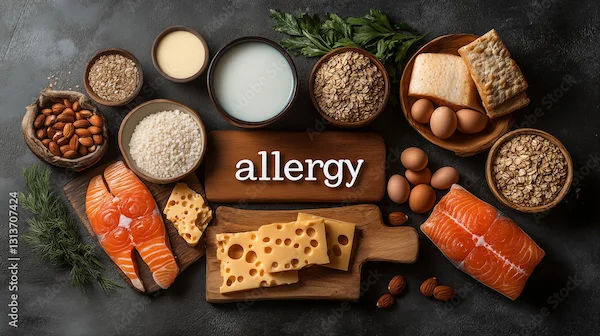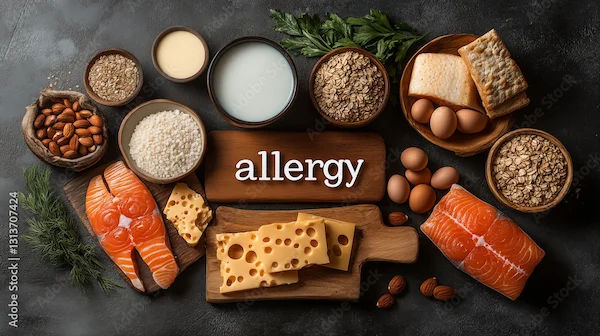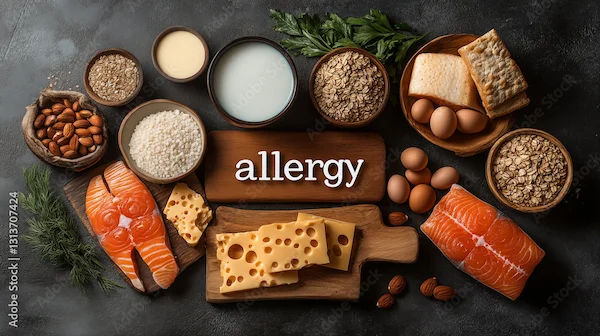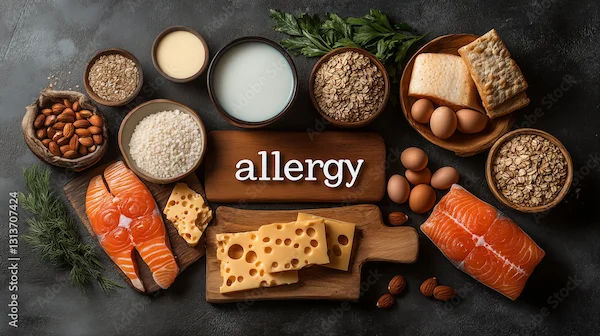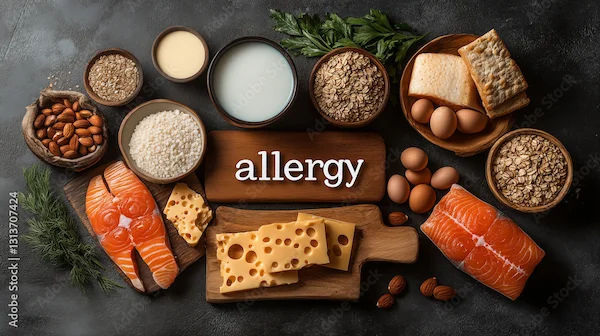Food Allergies: Overview of Causes and Treatments
Explore the causes, symptoms, and treatment options for food allergies. Learn how to identify triggers, manage reactions, and maintain a safe and balanced diet for allergy sufferers.

Written by Dr. Shaik Abdul Kalam
Reviewed by Dr. Rohinipriyanka Pondugula MBBS
Last updated on 13th Aug, 2025

Introduction
Food allergies are a common health concern that affects millions of people worldwide. If you or someone you know experiences discomfort or serious reactions after eating certain foods, you might be dealing with a food allergy. Understanding what causes them, recognizing symptoms, and knowing how to manage them can help you stay safe and healthy.
What Are Food Allergies?
A food allergy occurs when your immune system mistakenly identifies a harmless food protein as a threat and reacts against it. This reaction can range from mild discomfort to severe, life-threatening conditions like anaphylaxis. Unlike food intolerances (such as lactose intolerance), which affect digestion, food allergies involve the immune system and can be more dangerous.
Health topic carousel:
Doctor's speciality: Immunology
Text: Consult a Top Immunologist
Common Food Allergens
While any food can cause an allergic reaction, some are more likely to trigger allergies than others. The most common food allergens include:
Milk (especially in children)
Eggs
Peanuts
Tree nuts (such as almonds, walnuts, and cashews)
Soy
Wheat
Fish
Shellfish (such as shrimp, crab, and lobster)
Symptoms of Food Allergies
Food allergy symptoms can appear within minutes to a few hours after eating the triggering food. They may include:
Mild to Moderate Symptoms:
Itchy mouth or skin
Hives or rash
Swelling of the lips, face, or tongue
Nausea or vomiting
Stomach pain or diarrhea
Runny or stuffy nose
Sneezing
Severe Symptoms (Anaphylaxis):
Difficulty breathing or wheezing
Swelling in the throat, making it hard to swallow
Rapid drop in blood pressure
Dizziness or fainting
Loss of consciousness
Anaphylaxis is a medical emergency and requires immediate treatment with an epinephrine auto-injector (EpiPen) and a visit to the emergency room.
What Causes Food Allergies?
The exact cause of food allergies is still not fully understood, but several factors may contribute:
Genetics: If allergies run in your family, you may be more likely to develop them.
Immune System Overreaction: The body mistakes food proteins as harmful and attacks them.
Environmental Factors: Early exposure to certain foods, pollution, and dietary habits may play a role.
Gut Health: An imbalance in gut bacteria may increase allergy risks.
Diagnosing Food Allergies
If you suspect a food allergy, consult a doctor. They may recommend:
1. Skin Prick Test: A small amount of allergen is placed on the skin, and the reaction is observed.
2. Blood Test (IgE Test): Measures antibodies produced in response to allergens.
3. Elimination Diet: Removing suspected foods and reintroducing them to check for reactions.
4. Oral Food Challenge: Conducted under medical supervision to confirm allergies.
Health topic carousel:
Lab Test: IgE Test
Text: Get Your Health Assessed
Managing and Treating Food Allergies
While there is no cure for food allergies, proper management can help prevent reactions and keep you safe.
1. Avoid Trigger Foods
Read food labels carefully.
Be cautious when eating out, ask about ingredients.
Inform friends, family, and coworkers about your allergy.
2. Carry Emergency Medication
If you have a severe allergy, always carry an epinephrine auto-injector (EpiPen).
Wear a medical alert bracelet.
3. Know How to Respond to a Reaction
For mild reactions, antihistamines may help.
For severe reactions (anaphylaxis), use epinephrine immediately and call emergency services.
4. Consider Allergy Shots (Immunotherapy)
In some cases, doctors may recommend immunotherapy to reduce sensitivity to allergens.
Preventing Food Allergies in Children
Recent studies suggest that early introduction of allergenic foods (like peanuts) may help prevent allergies in high-risk infants. Always consult a pediatrician before introducing new foods.
When to See a Doctor
If you experience food allergy symptoms, consult an allergist for proper testing and treatment. If you have severe reactions, seek emergency care immediately.
Need Help? Book a Consultation Today!
If you suspect a food allergy, don’t wait, get expert advice. You can book a consultation with an allergist or schedule a test through Apollo 24|7 for quick and reliable diagnosis.
Final Thoughts
Living with food allergies can be challenging, but with awareness, proper precautions, and medical support, you can manage them effectively. Always stay informed, read labels, and keep emergency medication handy. If you’re unsure about your symptoms, consult a healthcare professional for guidance.
Health topic carousel:
Doctor's speciality: Immunology
Text: Consult a Top Immunologist
